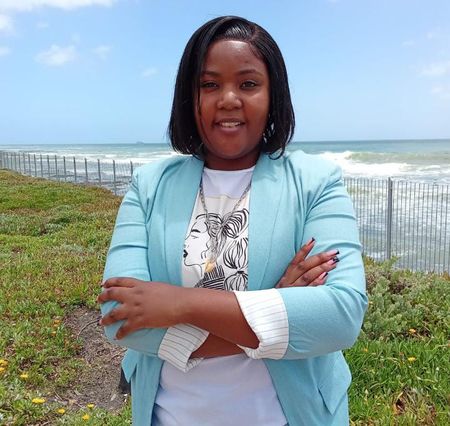René Botha, regional investment manager at Business Partners, said that the company had reached significant milestones, including R24.13-billion in finance invested, the creation of 698,685 job opportunities, and financing 73,837 businesses with investments ranging from R500,000 to R50-million.
Read more: Experts advocate for robust data sharing in SA to crack down on economic crime
Yet despite this progress, women entrepreneurs in South Africa remain underrepresented. According to the 2023/2024 Global Entrepreneurship Monitor (GEM) South Africa report, women’s entrepreneurial activity in South Africa increased to 13.5% in 2023, compared with 19.9% for men. However, the gender gap widens as businesses mature, with nearly twice as many men (7.9%) owning established businesses compared with women (4.1%).
Botha pointed to several unique challenges that continue to hold women back in business, including:
- Access to funding
- Male-defined and dominated leadership roles
- Too few role models
- Limited supporting networks
- Balancing business and family life
- Coping with fear of failure
Transforming desert salt into a global brand
These barriers are vividly illustrated in the story of Samantha Skyring, CEO and founder of Oryx Desert Salt, whose entrepreneurial journey began 20 years ago after a transformative 200km, seven-day trek through Namibia’s Namib Desert.
/file/dailymaverick/wp-content/uploads/2025/08/8b2156b6-0ea4-4f07-b944-10abc67d2735.jpeg)
Along the way, Skyring encountered the Oryx gazella — majestic animals uniquely adapted to survive in harsh, waterless environments but dependent on licking salt for essential minerals. This encounter sparked a business idea rooted in nature.
During her expedition, she discovered pristine salt deposits in the remote Kalahari Desert. These come from ancient rock formations, about 250 million years old, where underground streams flow, and the salt is naturally sun-dried at temperatures reaching 47°C. Inspired by this untouched resource, she envisioned a business that promoted healthful, unprocessed and uncontaminated desert salt.
Read more: Threads of change — SA women weave sustainability and livelihoods from plastic waste
Her vision starkly contrasts with the current salt market. Sea salt often contains microplastics — found in up to 90% of tested samples, with a single tablespoon potentially holding 50 plastic particles. Himalayan salt, though popular, is mined using dynamite that causes permanent landscape damage, and miners are frequently underpaid.
Table salt, meanwhile, is stripped of more than 80 essential minerals and laden with anti-caking agents, chemicals and sometimes even bleaching agents or sugar.
Recognising these problems deepened Skyring’s commitment to her venture.
“I ended up selling my house to buy salt… that was my investment,” she said, underscoring the personal sacrifices behind her journey.
Although she has yet to replace her home, the business continues to grow. However, tariffs remain a major challenge.
“At the moment we are dealing with 30% tariffs… it takes all of our profits,” Skyring said, hoping this obstacle would soon be lifted.
Despite these setbacks, Oryx Desert Salt has successfully expanded internationally, delivering products to 20 countries and providing income for more than 50 part-time and full-time employees.
Bridging gaps in education and workforce development
Delia Cupido, the founder of Chameleon Schools in the Western Cape, began her journey with a single Early Childhood Development (ECD) centre. Today, she oversees six independent inclusive schools serving about 200 learners with a staff of 70 teachers, educating mainstream students from ECD through Grade 7.
/file/dailymaverick/wp-content/uploads/2025/08/IMG_6277.jpeg)
Cupido candidly spoke of the ongoing funding challenges her schools face: “The challenges are funding; the Department of Education is not coming to the party; everything has to come out of the school fees.” She added that the department often cited a lack of sufficient funds.
These constraints are compounded when parents lose their jobs, leading to the non-payment of fees, a situation that directly affects the schools’ ability to provide services and hampers plans to expand into other provinces.
Local solutions for global offshore skills
Meanwhile, Louise Concar, chief operating officer at the Offshore Africa Training Centre, said that the business was created in 2013 specifically to address “the gap in the market for international training for offshore oil and gas”.
/file/dailymaverick/wp-content/uploads/2025/08/15c842ee-c91f-440b-96cb-f46f8f5596f1.jpeg)
Previously, many South Africans and Africans had to travel to Scotland for this training, which was expensive and took them away from home for long periods. To solve this, Offshore Africa developed a centre offering courses that meet “the same international standards” as those abroad.
The business has grown to employ eight people, with women making up 50% of the workforce. They also offer short courses aimed at individuals without formal qualifications, helping them access job opportunities overseas.
Navigating gender and operational challenges
Nkosazana Nongingi-Potwana, Managing Director and founder of Luzana Carriers and Logistics, confronted her own set of challenges.
/file/dailymaverick/wp-content/uploads/2025/08/5d97a2bd-2f5c-4d4c-95d0-e8bb1e1d063a.jpeg)
She left her teaching career after realising she had spare time outside her day job. Encouraged and supported by her husband, who works in the transportation industry, she started the business and was given a truck by him to begin operations.
Nongingi-Potwana registered Luzana Carriers in 2001, but the business only began to take off in 2011. A year later, she resigned from teaching to focus fully on growing the company, which now employs 20 people, including 10 permanent staff. In the past year, the business generated revenue of approximately R3- to R4-million.
However, the industry is not without its challenges.
“It is always regarded as men’s business,” she said. “Many times when I knock, the doors are shut. Most people think we are just fronting, that someone else owns the business, not us.”
She also cited operational costs, especially fuel, as a major financial burden, along with the struggle to secure support from larger companies. Currently, her main client is Coca-Cola, but she hopes to expand partnerships with other major brands such as Woolworths. DM





 Empowered women, building their dreams one business at a time.
(Photo: iStock)
Empowered women, building their dreams one business at a time.
(Photo: iStock)